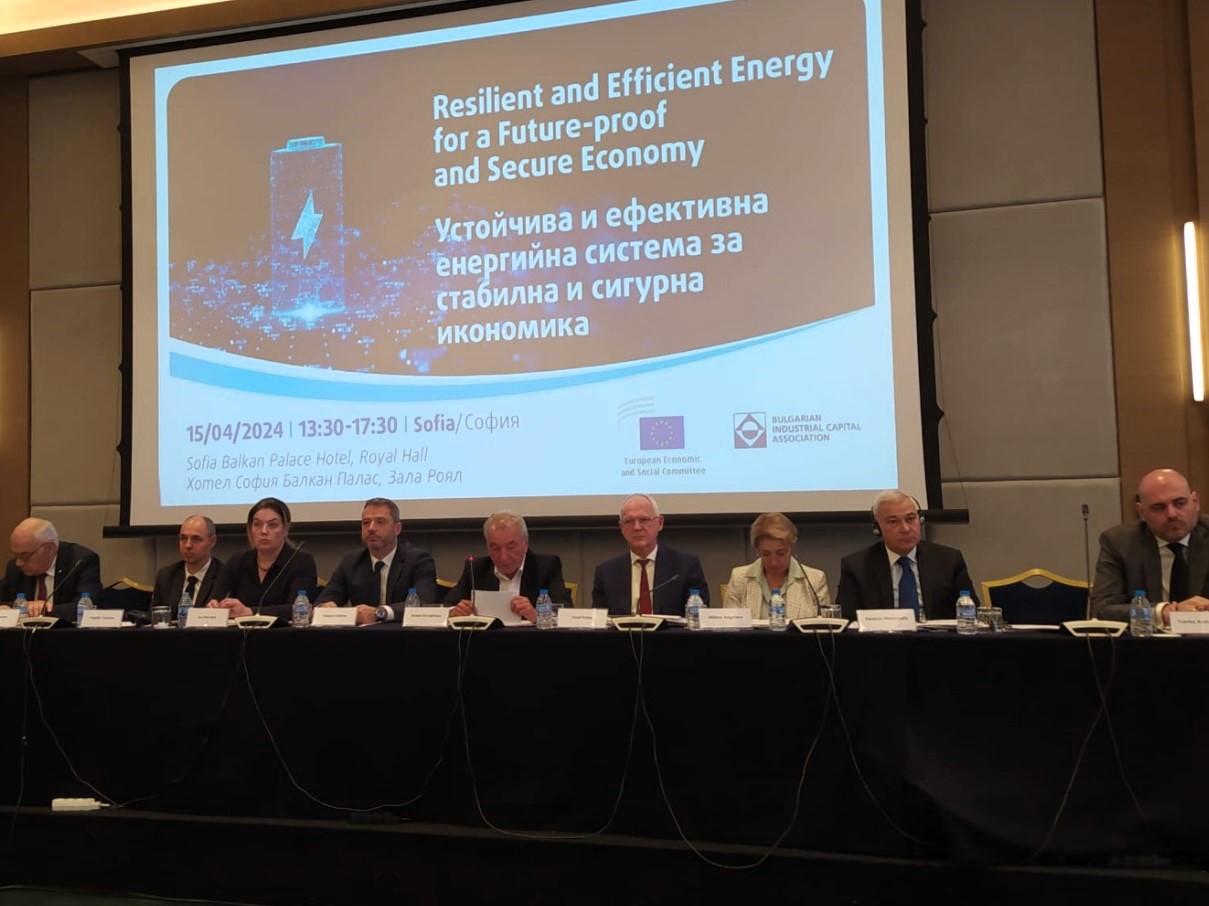Iva Petrova: Energy transformation cannot be successful and sustainable without direct involvement of citizens in the process
When we talk about such a large-scale process as energy transformation, it cannot succeed without the direct involvement of citizens in this process. Decentralisation – energy production and consumption, the development of energy markets and investments in a clear and stable regulatory environment should also be the focus of the transition. That is what Deputy Energy Minister Iva Petrova said at the Forum “Resilient and efficient energy for a future-proof and secure economy”, organised by the Bulgarian Industrial Capital Association. To participants in the Forum, the Deputy Energy Minister presented key highlights of the draft Strategy for Sustainable Energy Development 2030, with a horizon until 2050 and the update of the Integrated Energy and Climate Plan. The two documents were developed in cooperation and active dialogue with a wide range of stakeholders – ministries, employers' and non-governmental organisations, trade unions, energy companies, etc.
Energy security is a clear priority in the draft Energy Strategy, Iva Petrova underlined. In her words, the long-term result must be to ensure a secure supply of sustainable energy at affordable prices for all consumers.
In order to achieve the energy security priority in the context of the decarbonisation objectives, the draft Strategy envisages the continued introduction of renewable sources combined with new flexible low-emission hydro energy and nuclear capacities in a smooth, just and structured transition.
In terms of demand and consumption, energy efficiency takes a leading place, along with the active participation of consumers in the energy market.
Achieving strategic objectives requires the existence of substantial financing, coming from various sources, but most of the financing resources are limited in time. From this perspective, the possibility of attracting private investment for a successful transformation of the sector should be considered, according to the Deputy Energy Minister.
The draft updated Integrated Energy and Climate Plan determines the country's national contribution to the increased European target for renewable sources in 2030. The share of energy from RES in gross final consumption over this period should reach 34.1%.
An important milestone in the preparation of the updated plan is the development of a new forecast for a common energy balance that reflects political and economic developments with a significant impact on energy markets, Iva Petrova stressed. The main forecast used is a baseline scenario developed using the general mathematical model PRIMES adapted to the country's needs. The result is the BEST model (Bulgaria Energy System Tool), which modelled two forward-looking development scenarios, with existing and additional measures. The final version of the updated INECP with the two forecast scenarios is expected to be submitted to the EC by the end of June 2024.

